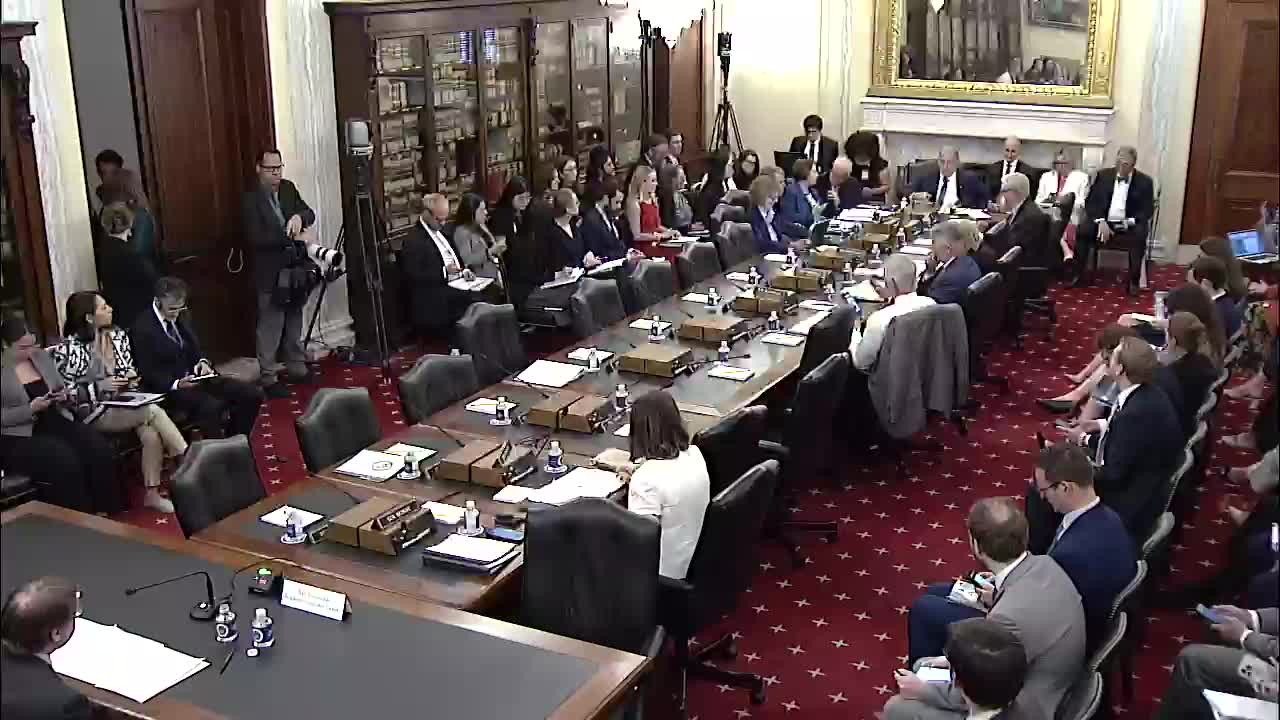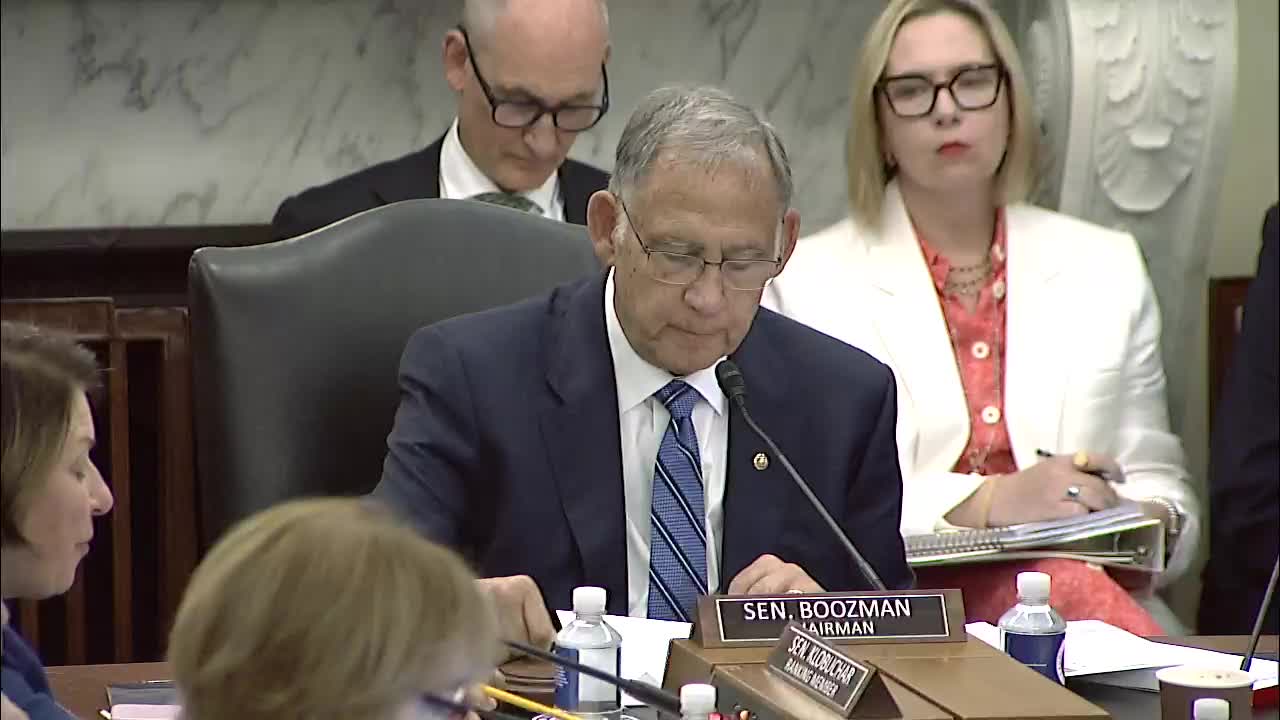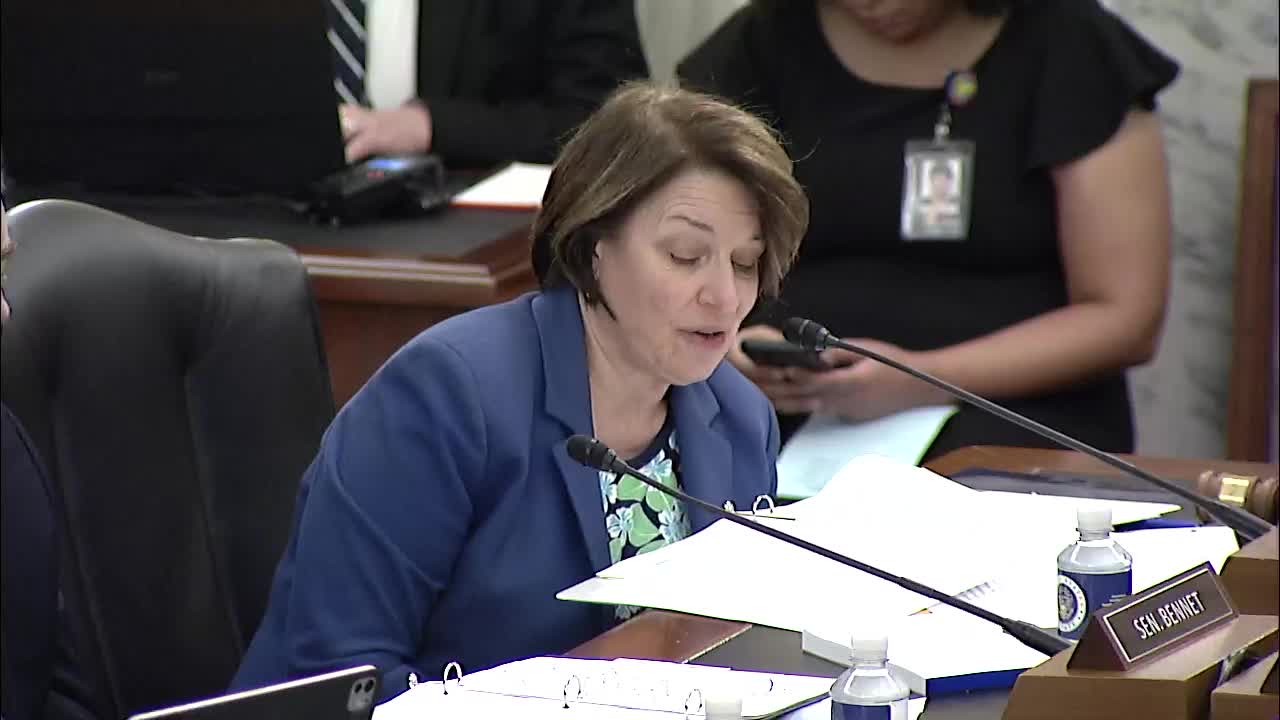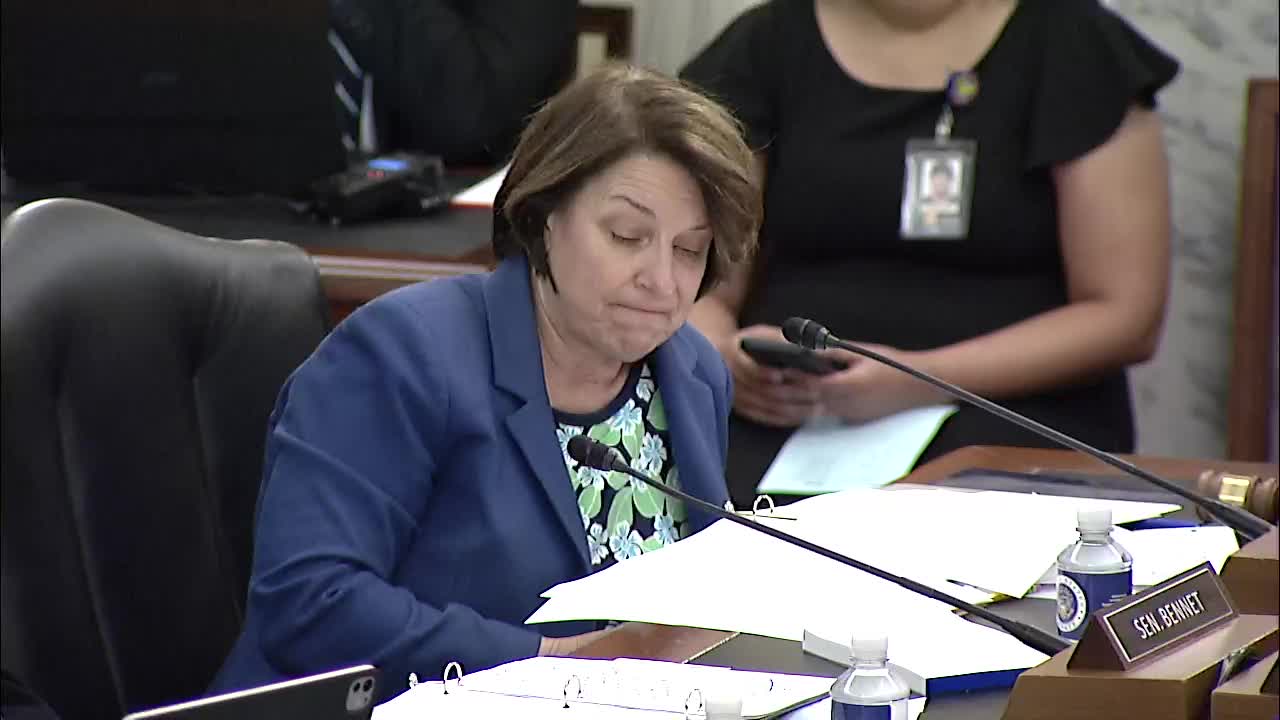Article not found
This article is no longer available. But don't worry—we've gathered other articles that discuss the same topic.

Senate hearing probes USDA plan to move 2,600 headquarters jobs to five regional hubs

Senators press USDA on workforce losses, buyouts and potential disparate impacts of relocation

Lawmakers ask how USDA reorg will affect SNAP, WIC and program integrity oversight

